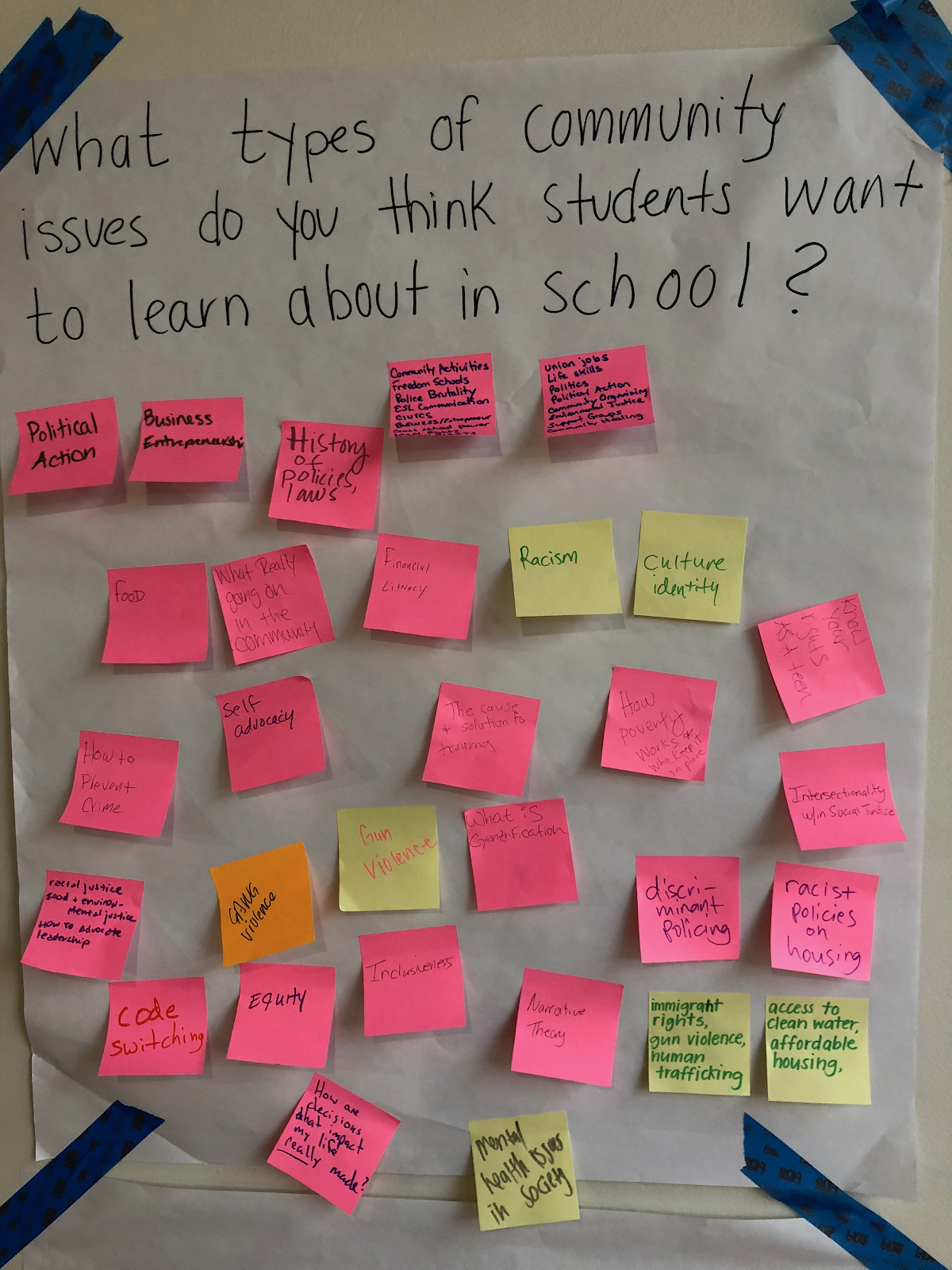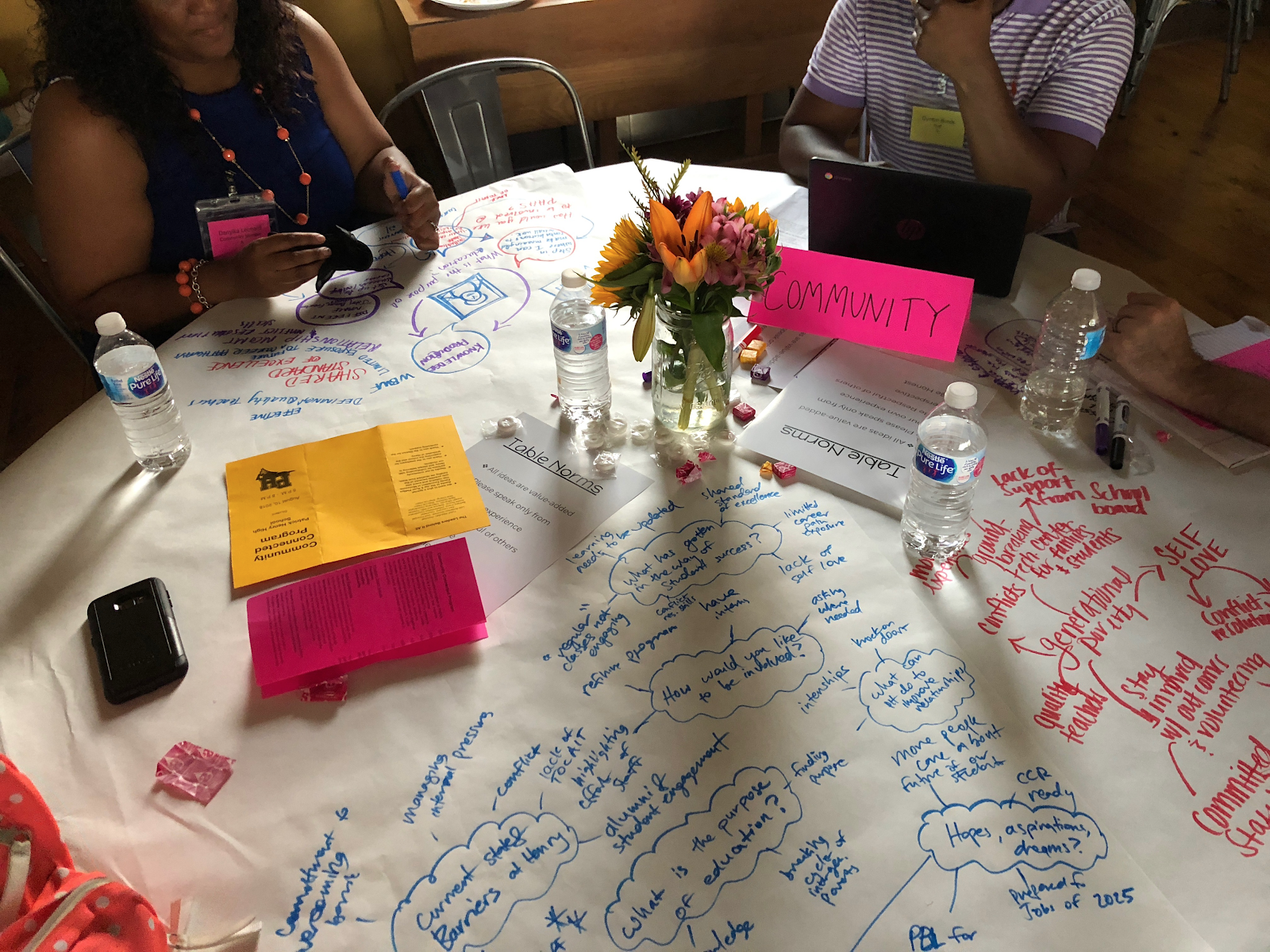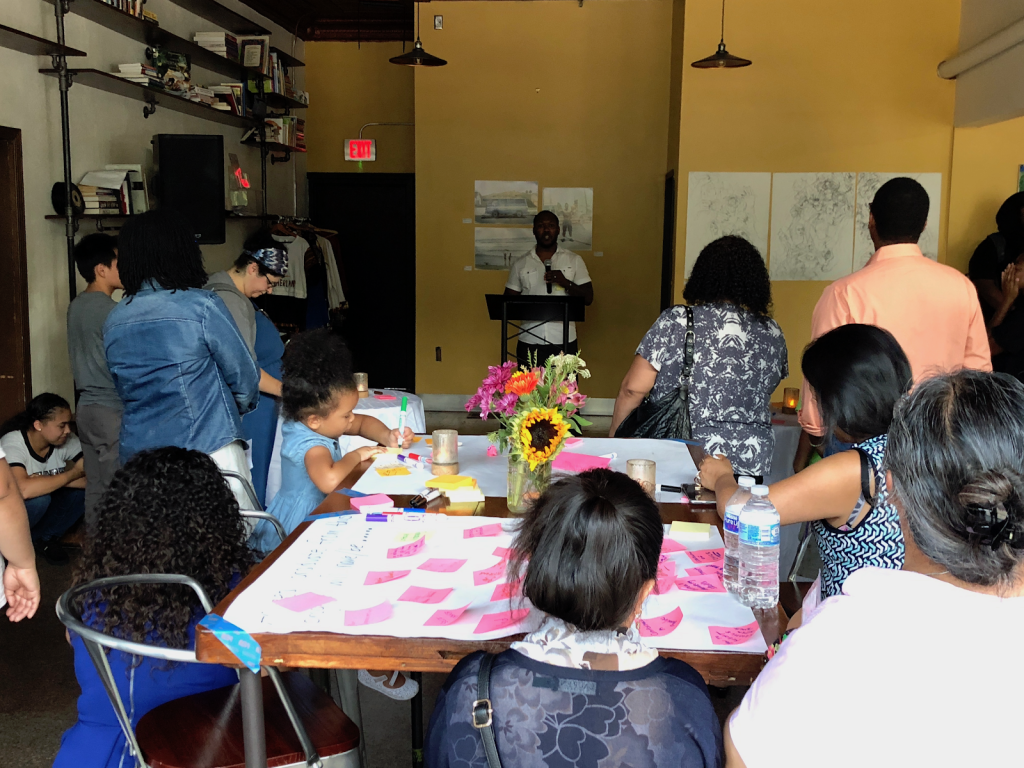Conflict resolution. Statistics. Self-advocacy. Science and math. Entrepreneurship. Job interviews. Problem-solving. Types of power. Building strong networks. Their own history.
These were some of the answers students, staff, families, and community members of Patrick Henry High School gave during a gathering last Friday to the question, “What topics should students learn about in school?”
Patrick Henry, a district high school in North Minneapolis that serves primarily low-income students and students of color, is part of a growing movement of public schools and districts around the country that are convening their local communities to create a Portrait of a Graduate—a “collective vision that articulates the community’s aspirations for all students”.
This blog post will explore the themes that emerged from the event last Friday and describe a new social justice themed project-based learning academy that will be launching this fall at Patrick Henry, which the event was intended to inform.
Community Emphasizes Importance of 21st Century Skills and Social-Emotional Competencies
When students, families, and community members arrived for the event, they found a number of large sheets of flip chart paper posted around the space. They were asked to circulate and leave their answers on post-it notes to questions like: “What types of community issues do you think students want to learn about in school?” and “What would an ideal graduate be able to do/have?”
 After the gallery walk, a number of school and community leaders addressed the group. Finally, guests shared dinner and participated in facilitated small group conversations where the questions were explored with greater nuance.
After the gallery walk, a number of school and community leaders addressed the group. Finally, guests shared dinner and participated in facilitated small group conversations where the questions were explored with greater nuance.
Throughout the evening, the themes that emerged echoed what education advocates call “21st century skills” and “social-emotional competencies”. In addition to the skills listed in the opening line of this post, other prominent themes included:
- Self-management skills (like project management, meeting deadlines, persistence, grit)
- Communication skills (like collaboration, working across difference, and cultural code switching)
- Practical college/career skills (like networking, applying for jobs, resume building, and making decisions about college programs)
- Social justice themes (like self-advocacy, self-care, and knowledge about racism and gun violence)
These themes are also aligned with Education Evolving’s findings on the student competencies correlated with success in college, careers, and life, as part of research we are conducting for a paper on student-centered learning outcomes that is due out in October 2018.
And while community members valued broader and deeper competencies, academics were still highly important. As Sondra Samuels, President & CEO of the Northside Achievement Zone, and one of those who addressed the group, said: it’s important that “students are also expected to meet high standards.” That doesn’t need to be in conflict, she said, “with learning experiences that respect who students are, how they learn, and what they want to do.”
A New Social Justice Themed Project-Based Learning Academy
The Friday gathering was part of the planning process for a new social justice-oriented project-based learning academy that will launch this fall at Patrick Henry. Designed by teachers and supported by a grant from the Jay & Rose Phillips Family Foundation, the academy will “provide an innovative, culturally relevant curriculum option to students who will benefit from real world experiential learning”.
The program will begin with a cohort of 50 students in their junior year. Students enrolled in the program will spend part of their day taking courses from the main high school course catalog. They will also have a special block of time dedicated to project-based learning, where they will work on social justice themed projects that they have chosen and that are aligned with their interests.

Additionally, one day a week, the students will spend their morning working on real-world job skills and then spend their afternoon in the community at an internship aligned with their interests and career aspirations.
While program will start with 50 students, the goal is that one day, when fully enrolled, the academy will grow to serve 250 students—and that successful practices and strategies learned in that program might spread within the larger high school.
Education Evolving will continue to report on innovative ways communities are defining and measuring student learning objectives. Sign up to receive Education Evolving blog posts by email. Also, stay tuned for our upcoming paper on defining and measuring student-centered outcomes, coming October 2018.
